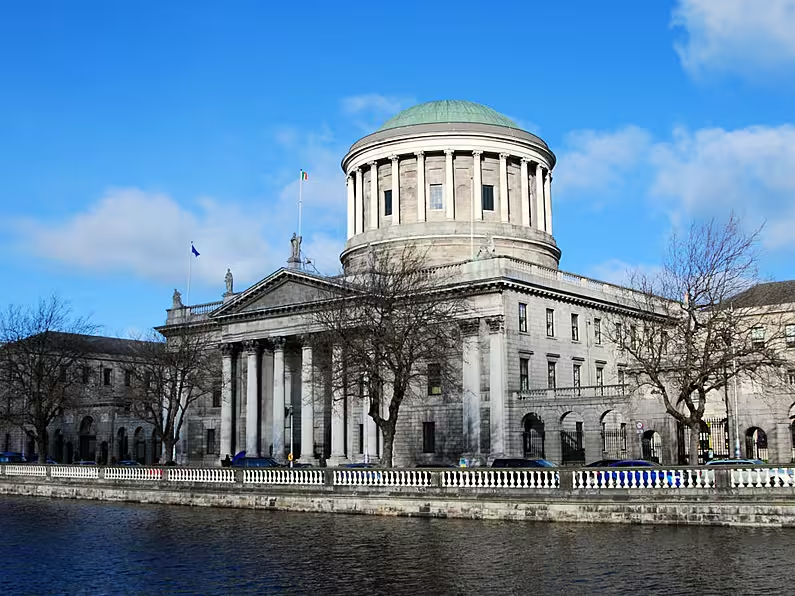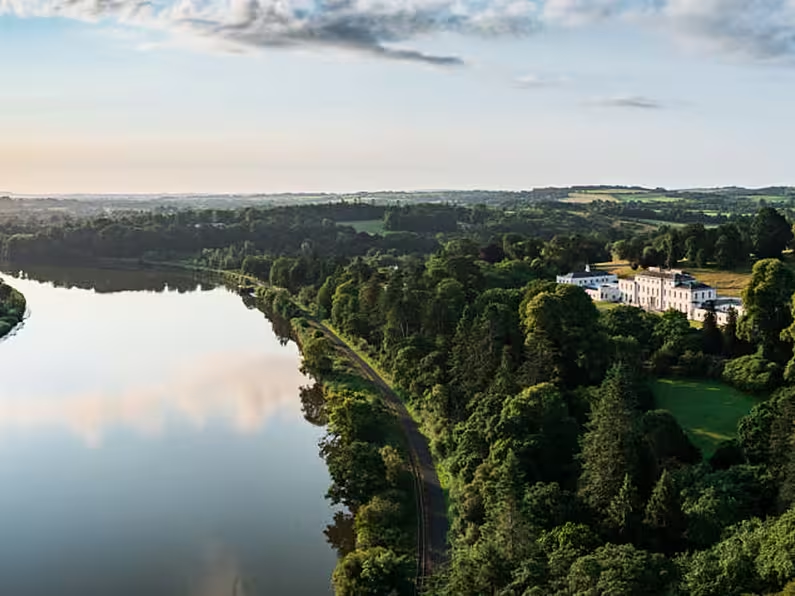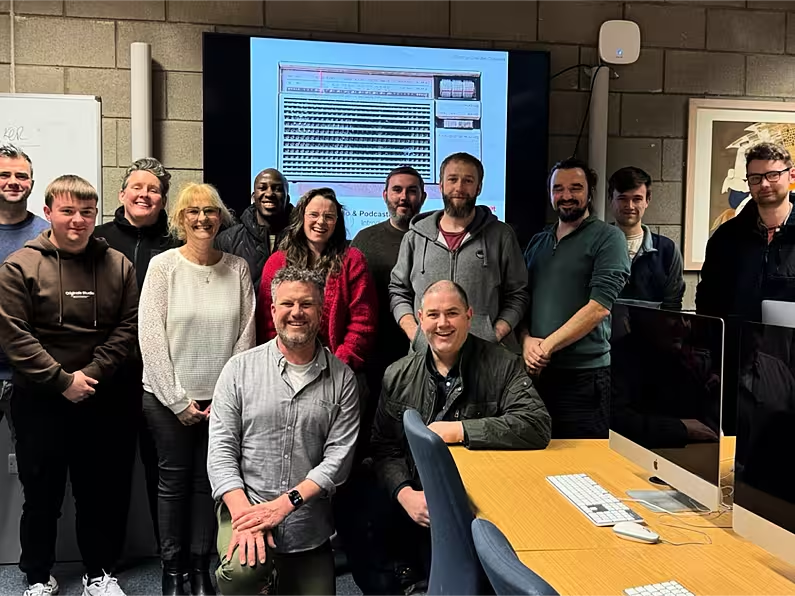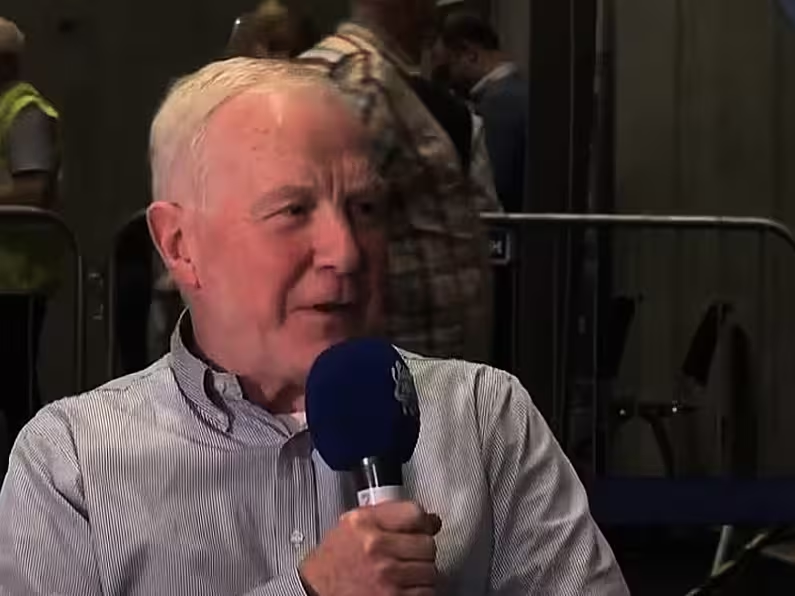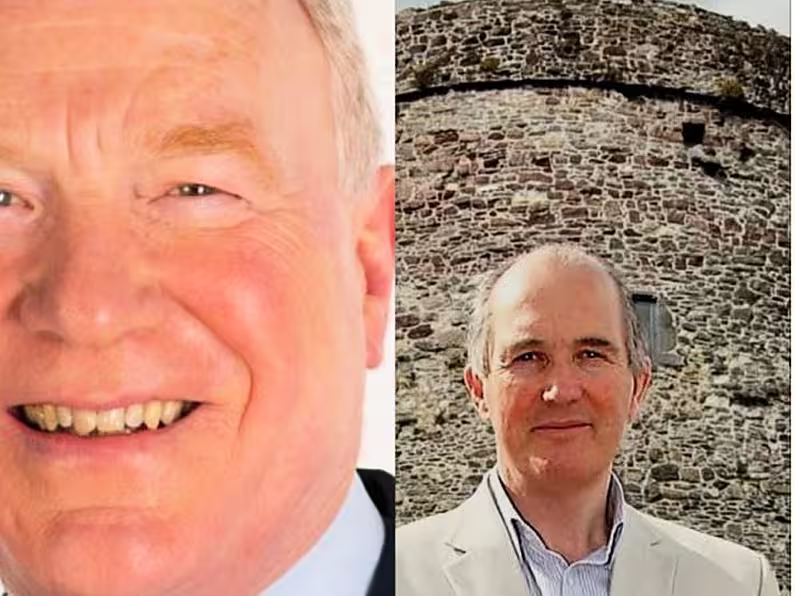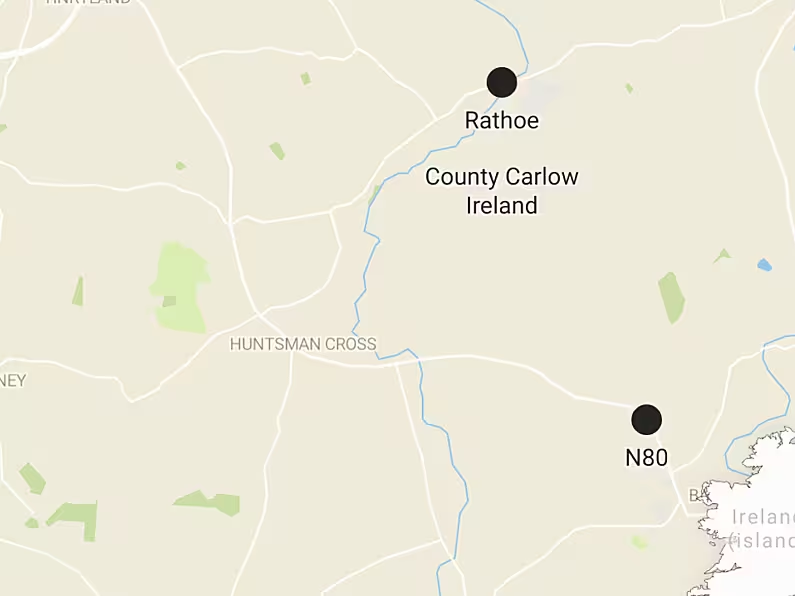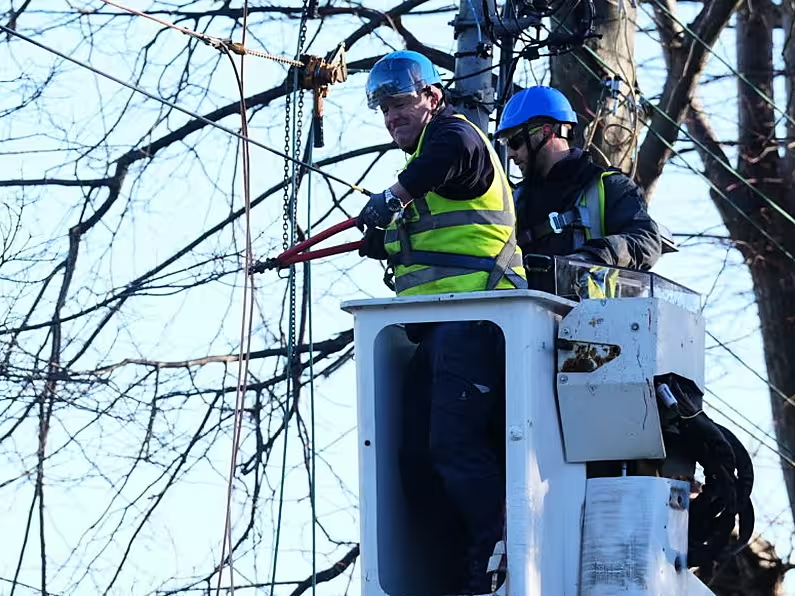By David Young, PA
Jeffrey Donaldson vowed to “right the wrong” of the Northern Ireland protocol as he formally became DUP leader designate.
The Lagan Valley MP said the removal of the post-Brexit barriers on trade between the North and the rest of the UK would be one of his key priorities in the role.
His pledge came after his leadership bid secured the majority backing of the DUP’s electoral college of party MPs and MLAs.
Mr Donaldson received support from 32 of the college’s 36 members at a meeting in a Co Antrim hotel on Saturday.
Significantly, outgoing leader Edwin Poots – who resigned after just three weeks in the job – did not attend the gathering.
After receiving what he described as the “resounding endorsement” of the electoral college, Mr Donaldson vowed to bring the party together again after a chaotic two months.
Internal divisions have been laid bare after successive revolts deposed former leader Arlene Foster and her successor Mr Poots.
Mr Donaldson, the party’s 58-year-old Westminster leader, was the only candidate to put his name forward for the DUP leadership after the dramatic resignation of Mr Poots last week.
“I believe that today’s decision is an important first step in building the unity of my party, in rebuilding the strength of my party, in providing the leadership that Northern Ireland needs at this time,” he said.
“It’s been a difficult and a bruising period for the DUP, we all acknowledge that and we’ve all played our part in that.
“But this morning we are seeing our party coming back together again.”
Commenting on Brexit’s contentious Northern Ireland protocol, which has created an economic border between Great Britain and Northern Ireland, Mr Donaldson said: “Northern Ireland is given the right under the Act of Union to trade freely with the rest of our own country and all that we ask is for that right to be restored, that we can trade freely with the rest of the United Kingdom and continue to trade with our neighbours,” he said.
“And there must be a solution to that. We need to find that solution.”
Mr Donaldson said he also wanted to address Northern Ireland’s spiralling waiting lists, educational underachievement and focus on rebuilding the economy post Covid-19.
“Our priority as well will be to right the wrong that has been done by the imposition of this protocol and to restore Northern Ireland’s place fully within the UK internal market,” he added.
“And I will continue to engage with the [British] government. Much work has been done but more needs to be done to find the solutions to these issues that will help put Northern Ireland back on track, to help put our economy back on track and ensure that we have political stability, the stability that I know the vast majority of people want to see.”
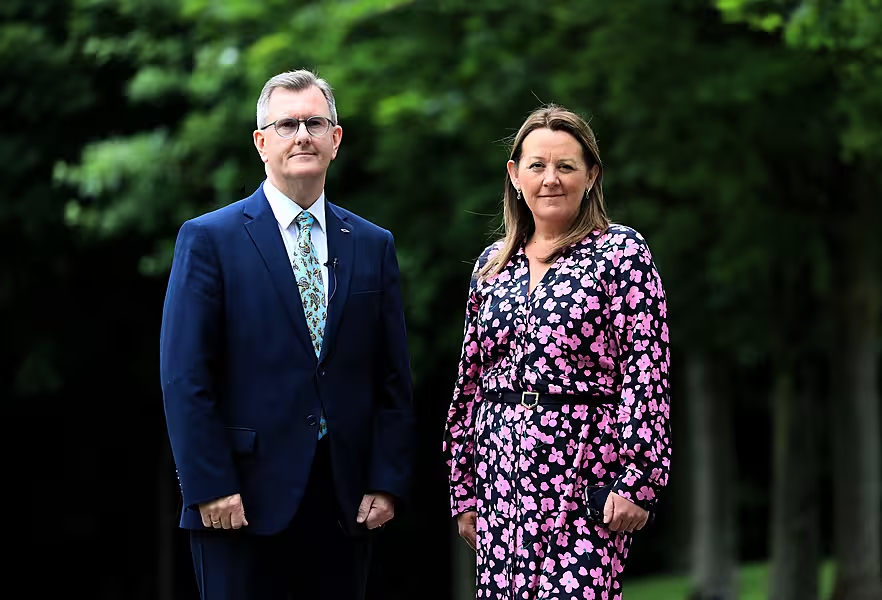
Mr Poots’ demise came only weeks after he narrowly defeated Mr Donaldson in the leadership contest to succeed Mrs Foster.
Having received the majority endorsement of the electoral college, which is made up of 28 MLAs and eight MPs, Mr Donaldson has become leader designate.
He will become the official party leader next week when the DUP’s ruling executive meets to ratify his appointment.
Mr Donaldson acknowledged the four members who voted against his leadership bid.
“Four of my colleagues decided today not to vote in favour of my leadership and I respect that, I respect their right to do so and my task, the challenge for me, is to win the confidence of all of our party, including the four who decided not to vote today in my favour,” he said.
Commenting on Mr Poots’ absence at the meeting, Mr Donaldson said he had “prior commitments” and was a “busy man” and had ministerial duties.
Mr Poots’ resignation came after he pressed ahead with reconstituting Stormont’s powersharing Executive alongside Sinn Féin, despite a significant majority of his MPs and MLAs being vociferously opposed to the move.
Party anger at a UK government pledge to grant Sinn Féin a key concession on Irish language laws was behind the internal opposition to Mr Poots’ decision to nominate a First Minister to lead the administration alongside the republican party.
Addressing the media after receiving the endorsement of the electoral college, Mr Donaldson was asked what his stance would be on the Government move on Irish language.
“I am very clear that if the Government proceeds to concede to Sinn Féin demands and goes over the head of the Assembly on these issues and, at the same time, fails to address unionist concerns on the protocol, that is not a sustainable position – to use the words of the Government – that is not a tenable position,” he said.
“And therefore, we need to see the Government moving on the protocol. And then we will look at the NDNA (New Decade New Approach agreement) issues at Stormont and how we take those forward.
“I don’t want to see things imposed on the people of Northern Ireland that they can’t support. I don’t want to see Westminster acting over the heads of the people of Northern Ireland. The people here elected their representatives to do a job. They have a mandate and they should be allowed to do that job.”
Serious question marks now hang over the future Mr Poots’ appointee as First Minister, Paul Givan. Mr Givan, who has voiced support for Mr Donaldson’s leadership, did attend Saturday’s meeting.

Mr Donaldson has made clear his intent to return from Westminster to assume the First Minister’s job.
However, the timeline for that move remains unclear.
He would have to trigger a parliamentary by-election in Lagan Valley in order to re-enter the Assembly and it is unclear whether he would want to prompt such a contest in the near future, given the DUP’s recent poor poll ratings.
Mr Donaldson said decisions on the future of First Minister Paul Givan had yet to be made.
“Paul remains in the office of First Minister for the time being. I will sit down with my party officer team after our AGM next week and we’ll look at those decisions that we need to take, we’ll look at what is in the best interest of the people of Northern Ireland,” he said.
In regard to when he would trigger a by-election, Mr Donaldson said: “My most immediate priorities are to
stabilise the situation, to get what we need in relation to the protocol and restoring our place within the UK internal market.”
Mr Donaldson said he would spend the next “week and months” visiting every constituency in Northern Ireland engaging with members of the community.
“Then I will look for an opportunity if it presents itself to return to Stormont,” he added.
“I am very clear – a leader should lead from the front, the main place where leadership is required today in Northern Ireland is in our devolved institutions.
“I want to lead those devolved institutions on behalf of my party, on behalf of the people of Northern Ireland and so I will look for the opportunity to do that, whether it’s in the Assembly elections next May or if an opportunity presents itself before that.”





